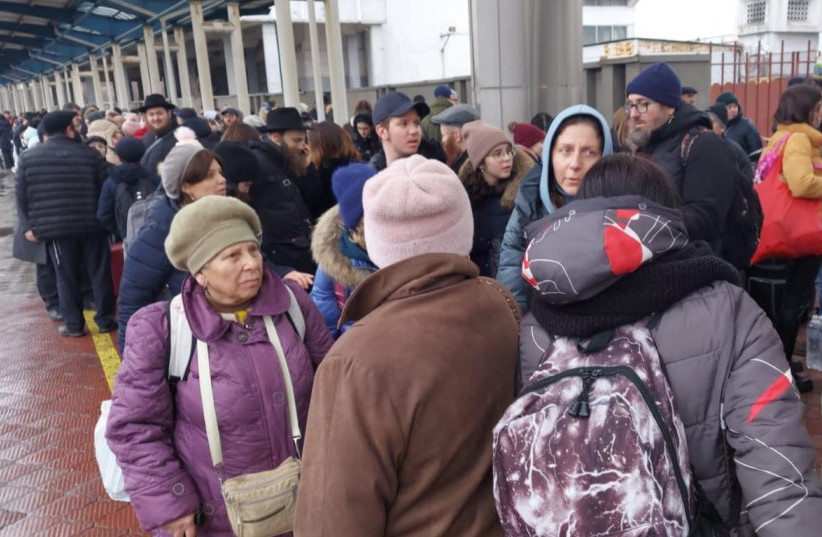The good news is that Interior minister Ayelet Shaked has altered the government’s policy on Ukrainian refugees on Sunday, and instead of capping the number fleeing the war that Israel would take in at a few thousand, she declared that anyone with a relative here can find refuge in the country for “a month or two.”
The disappointing news is that it took intense public pressure and a petition to the High Court of Justice to force her hand. In the end, Shaked did the right thing. The pity is that she didn’t do it from the very beginning and at her own volition.
Israel is a country of immigrants – and of refugees. It should have been clear that gut-wrenching images of refugees pouring over Ukraine’s borders would touch the hearts of scores of Israelis and their descendants who were themselves either refugees from Europe after the Holocaust, or from Arab lands after the establishment of the State of Israel. Having walked themselves in refugee shoes, or having had their parents walk in those shoes, it should have been clear to Shaked that a stingy refugee policy would cause an outcry.
And it did.
No sooner did she announce a limited policy last week of allowing 20,000 Ukrainian nationals already in the country to stay, and that Israel would take in 5,000 refugees who were not entitled to immigrate, that this policy was roundly criticized on the street, in the media, and by ministers in her own government.

Some criticism was spot-on – such as from those saying that first you let refugees into the country, and then you start going through the paperwork – while other criticism was over the top.
For instance, Diaspora Affairs Minister Nachman Shai, who from the start of the war was critical that Israel was not more welcoming of the refugees, said that “no other country has imposed limits on refugees.”
Shai was exaggerating.
The United States, for instance, has not set a Ukrainian refugee policy yet, beyond granting temporary protected status to the 75,000 Ukrainian nationals currently in the US. New Zealand, too, has not established a policy, though there is a public clamoring for it to do so. And those are just two examples. A distinction needs to be made between those countries that border Ukraine, who are taking in refugees without limits, and countries further afield, who are still formulating a policy.
The guidelines Shaked announced are intentionally ambiguous. For instance, she said relatives of Israeli citizens will be allowed to stay in the country for a limited time, but she did not define the term “relatives” – though Tomer Moskowitz, the director-general of the Population and Immigration Authority, said in a radio interview that it is restricted to first degree relatives, “not every third cousin.”
Moskowitz acknowledged that the government’s change of policy indicated that the original policy of 25,000 shouldn’t have been implemented. It is a positive development that the government can recognize a mistaken policy, and change it.
In a similar vein, it is welcome that foreign minister Yair Lapid made clear on Monday that Israel would abide by the Western sanctions imposed on Russia. But here, too, this should have been Jerusalem’s policy from the outset, not something it was pushed into – this time by outside forces, not domestic ones.
“Israel will not be a route to bypass sanctions imposed on Russia by the United States and other Western countries,” Lapid said in Slovakia in comments that cannot be divorced from US criticism that the Jewish state has not fallen fully in line with the West’s sanctions against Moscow. On Friday, US Under Secretary of State for Political Affairs Victoria Nuland admonished Israel that it doesn’t “want to become the last haven for dirty money that’s fueling [Russian President Vladimir] Putin’s wars.”
Increasing the number of refugees to be allowed into the country – beyond the estimated 200,000 Ukrainian Jews and their relatives eligible to immigrate under the Law of Return – as well as preventing the use of Israel to get around sanctions, is the right thing to do. It’s just a shame the government had to be pushed into doing it.
